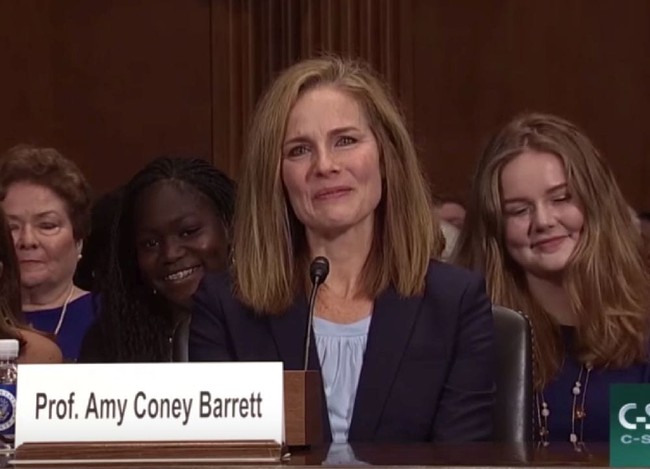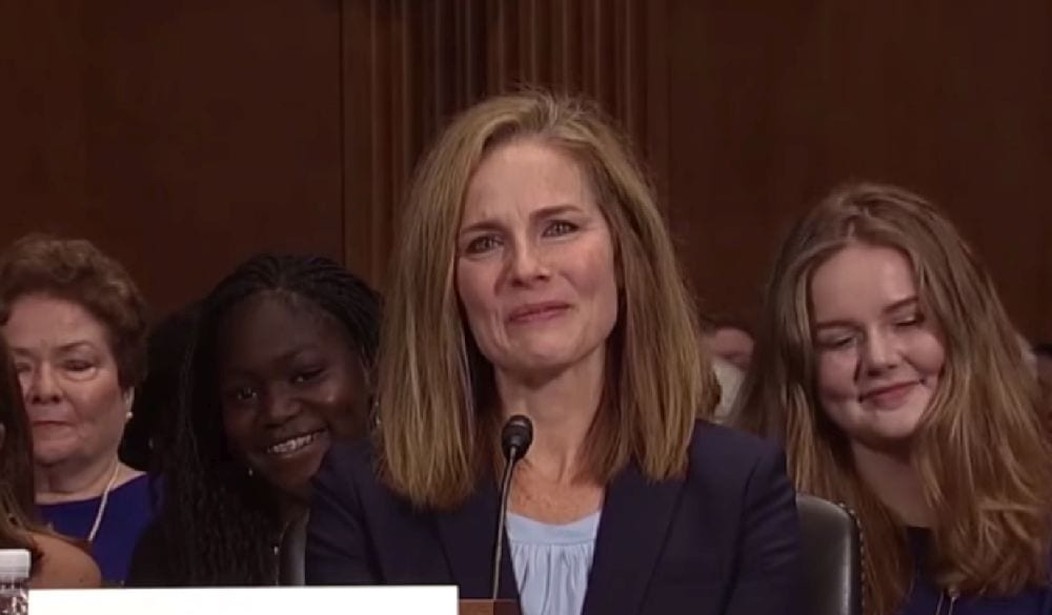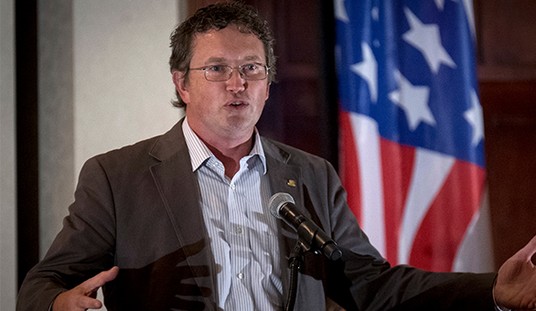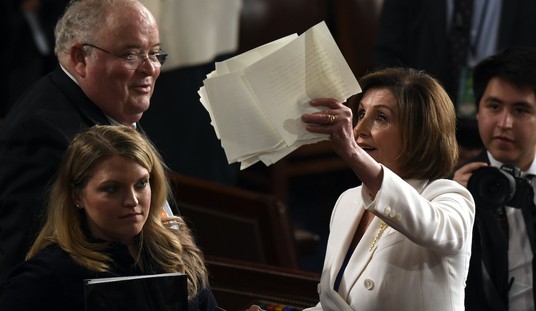
Earlier in the month, we were treated to the spectacle of a gaggle of Democrat senators literally applying a religious test to Notre Dame law professor who has been nominated to a seat on the Seventh Circuit.
Amy Comey Barrett was the nominee. She is Roman Catholic, she is not gay, she has seven children. The fact that she’s not a gay Catholic who is married to her “life partner” is probably what made the Democrats here queasy:
Here’s Dianne Feinstein:
WATCH: Sen. Feinstein to appeals court nominee Amy Barrett, @NotreDame law prof/#Catholic mother of 7: "The dogma lives loudly within you." pic.twitter.com/mpDgNZGRsa
— Jason Calvi (@JasonCalvi) September 6, 2017
When you read your speeches, the conclusion one draws is that the dogma lives loudly within you. And that’s of concern when you come to big issues that large numbers of people have fought for for years in this country.
Here’s Hawaii’s Mazie (Mazie, srsly??) Hirono:
I think your article is very plain in your perspective about the role of religion for judges, and particularly with regard to Catholic judges.
Dick Durbin:
“Do you consider yourself an orthodox Catholic?”
Given that Durbin is allegedly Catholic himself, he seems to be asking if she actually believes any of that mumbo-jumbo.
Traditionally, questioning a nominee’s religion has been off limits because the Constitution says it should be. But Feinstein and her ilk can’t take the chance on having actual Christians, especially smart and articulate ones, appointed to the federal bench because to do so might slow the race to the moral bottom that they have been encouraging since the early 60s. Now that the main attack against Professor Barrett based on her Catholicism has failed, they are trying a new attack based on her being some sort of very weird Catholic (as an aside, you can guaran-f***ing-tee this would not be happening if she did not have seven kids):
Ms. Barrett told the senators that she was a faithful Catholic, and that her religious beliefs would not affect her decisions as an appellate judge. But her membership in a small, tightly knit Christian group called People of Praise never came up at the hearing, and might have led to even more intense questioning.
Some of the group’s practices would surprise many faithful Catholics. Members of the group swear a lifelong oath of loyalty, called a covenant, to one another, and are assigned and are accountable to a personal adviser, called a “head” for men and a “handmaid” for women. The group teaches that husbands are the heads of their wives and should take authority over the family.
…
Current and former members say that the heads and handmaids give direction on important decisions, including whom to date or marry, where to live, whether to take a job or buy a home, and how to raise children.
Legal scholars said that such loyalty oaths could raise legitimate questions about a judicial nominee’s independence and impartiality. The scholars said in interviews that while there certainly was no religious test for office, it would have been relevant for the senators to examine what it means for a judicial nominee to make an oath to a group that could wield significant authority over its members’ lives.
People of Praise is a mainly Catholic, though ecumenical, group that forms religious communities in a way very similar to how Catholic religious communities are formed everywhere. There is voluntary affiliation, a period of discernment that lasts several years to give the candidate to decide if the community is a good fit with them, and then a covenant relationship that is permanent on a spiritual level even though the member may leave the community.
What makes People of Praise different is they come from the charismatic renewal movement in the Catholic Church. I’m not a huge fan of the speaking in tongues, faith healing, etc., but that is my personal belief and the charismatic renewal movement was recognized by Pope Saint John Paul II as being a legitimate expression of Catholicism.
These kinds of lay communities are not unusual in Catholicism and they are almost always met with suspicion. Several years ago the media went through the same frenzy over Opus Dei which has a lot of similarities.
In short, it is absolutely no one’s business what a person’s faith practices are. The fact that the New York Times is purveying this crap in an obvious attempt to hurt Professor Barrett’s chances for confirmation is both shameful and shows the degree to which actual religious faith is held in suspicion by the secular elites.














Join the conversation as a VIP Member